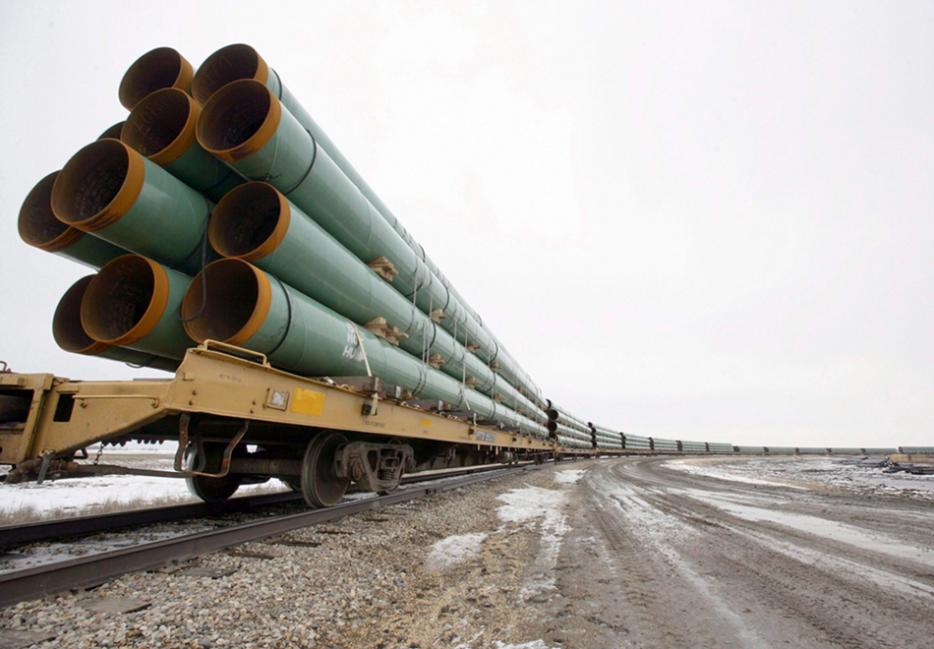So Premier Christy Clark, fresh off her election win in British Columbia, is using her political capital to... let me consult the media cliché dictionary... ah, here we are, she’s drawing a line in the tar sand. Clark’s government formally announced its opposition to Enbridge’s Northern Gateway pipeline project, which would take bitumen from the Alberta tar sands to the port of Kitimat on B.C.’s northern coast. In all the noise about a newly empowered premier flexing some political muscle, it’s easy to miss one crucial fact: Clark’s opposition technically doesn’t mean much.
The government’s opposition was submitted to the Joint Review Panel of the National Energy Board, which is in charge of approving the pipeline (or not) because it crosses a provincial boundary. Does Clark have the power to stop the pipeline? There are plenty of reasons to think she doesn’t, including the federal government’s right to regulate “Works and Undertakings connecting the Province with any other or others of the Provinces” and, should Stephen Harper choose to proceed in such a fashion, the Canadian Parliament’s power to declare a public project to be in the national interest.
Harper, for his part, has said the Northern Gateway project is indeed in Canada’s interest as Ottawa tries to create a list of customers for Albertan oil more expansive than just “Americans, and only Americans.” But the ambition to be a global energy player who still looks nationalistic and proud to his supporters in Canada looks like something else in the US. This last weekend, the New York Times ran an essay describing China’s growing “economic empire,” and guess which non-Rob-Ford-related Canadian story made it?
“President Obama’s refusal thus far to approve the Keystone pipeline project has made Prime Minister Stephen Harper’s Conservative government turn to China to secure an export market for Canadian crude oil reserves. The Calgary-based oil industry has lobbied Mr. Harper to adopt a new diversification strategy... In the meantime, Canada also signed a Foreign Investment Promotion and Protection Agreement with China, which gives remarkably generous investment protection to the Chinese.”
Reading the Times piece, one gets the sense that Canada will somehow always be a bit player even in its own politics, as if the substantial arguments Canadians are having with each other are just a microcosm of the larger battle between China and the US over who will secure our precious, precious oil. That’s one way to look at it, of course, but for now let’s just dwell on the hints of suspicion that Americans have whenever Canada tries to sell east instead of south.
Sometimes it’s not subtle: in the 2012 election, Mitt Romney told a crowd of supporters he was going to “get us that oil from Canada that we deserve,” and Representative John Culberson described President Obama’s delay of the Keystone XL pipeline as “[driving] our friends the Canadians into the arms of China,” adding the usual boilerplate about the threat to national security this represented.
And what of Keystone, intended to take tar sands bitumen to refineries in Texas? With locals saying the American side of it will be built no matter what thanks to the oil boom in North Dakota (better living through hydraulic fracking!), what Harper originally suggested was a prod to the US could now end up giving Obama an excuse to nix Keystone’s border-crossing: hey, Canada can find customers across the Pacific anyway, and there are still plenty of oil jobs (and, more importantly, oil) in North Dakota. It’s tempting to call it one big passive-aggressive spat, but it’s something simpler and more serious: on this issue, Canada and the US have different interests. That’s allowed, you know.






